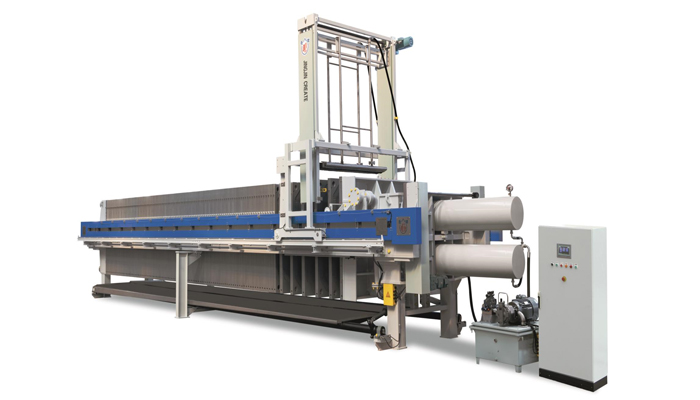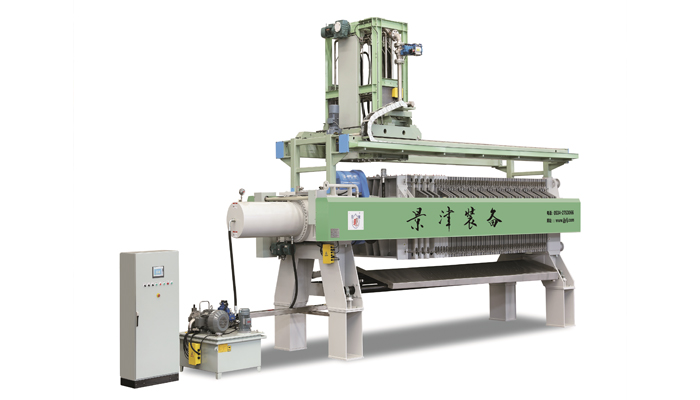Plate and frame filter press membrane filter press is a highly effective tool for wastewater treatment. This article explores the benefits and applications of this filtration system, highlighting its ability to remove impurities and achieve higher filtration efficiency.
Introduction:
The plate and frame filter press membrane filter press is widely recognized for its efficiency in wastewater treatment. This article focuses on the benefits and applications of this filtration system, emphasizing its role in removing impurities and improving the overall quality of treated water.
With its compact design and versatile functionality, the filter press plays a crucial role in achieving effective wastewater treatment.

The Advantages of Plate and Frame Filter Press
The filter press offers several advantages that enhance wastewater treatment processes. These advantages include
1. Efficient Filtration: This filtration system provides efficient removal of impurities from wastewater, ensuring cleaner and clearer water. The membrane filter press enhances filtration efficiency, resulting in improved water quality.
2. Versatility: The membrane filter press can handle a wide range of wastewater types, including industrial, municipal, and agricultural wastewater. Its versatility makes it suitable for various applications, allowing for effective treatment of different sources of wastewater.
3. Compact Design: With its compact design, the filter press requires minimal space for installation. This makes it ideal for both small-scale and large-scale wastewater treatment facilities, optimizing the use of available space.
Applications of Plate and Frame Filter Press Membrane Filter Press
The plate and frame filter press membrane filter press find extensive use in diverse wastewater treatment applications. Some notable examples include
1. Industrial Wastewater Treatment: Industries generate wastewater with high levels of contaminants and pollutants. The filter press effectively removes these impurities, ensuring compliance with environmental regulations and reducing the impact on surrounding ecosystems.
2. Municipal Wastewater Treatment: Municipal wastewater treatment plants rely on the filter press for efficient removal of solids, organic matter, and other pollutants. This filtration system plays a vital role in providing clean water for communities and protecting public health.
3. Agricultural Wastewater Treatment: Agricultural activities often produce wastewater containing fertilizers, pesticides, and other agricultural residues. The plate and frame filter press membrane filter press assists in the removal of these substances, preventing contamination of water sources and safeguarding the environment.

Example and Case Study
To illustrate the effectiveness of the filter press, consider the following case study:
Case Study: Textile Industry Wastewater Treatment In a textile manufacturing plant, the plate and frame filter press membrane filter press were implemented to treat the wastewater generated during production.
This filtration system efficiently removed dyes, chemicals, and suspended solids, resulting in cleaner water that could be safely discharged or reused.
The compact design of the filter press allowed for easy integration into the existing wastewater treatment process, optimizing the plant’s overall efficiency.
Conclusion:
The filter press is a valuable tool in wastewater treatment, offering efficient filtration and versatility for various applications. Its ability to remove impurities and enhance filtration efficiency ensures cleaner water and a healthier environment.
Whether used in industrial, municipal, or agricultural settings, the plate and frame filter press membrane filter press plays a crucial role in achieving effective wastewater treatment. With its compact design and cost-effectiveness, this filtration system is an essential component in the quest for sustainable water management.